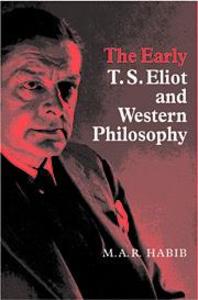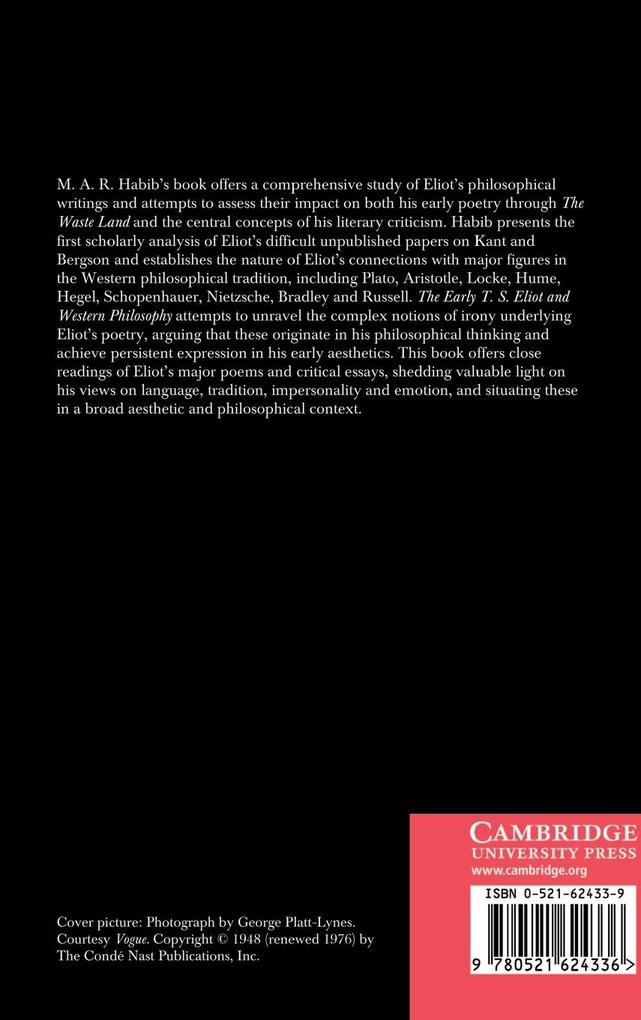
Zustellung: Di, 17.06. - Fr, 20.06.
Versand in 1-2 Wochen
VersandkostenfreiBestellen & in Filiale abholen:
Study of Eliot's philosophical writings, assessing their impact on his early poetry and literary criticism.
Inhaltsverzeichnis
Preface; 1. (a) Henry Adams and the search for unity (b) Irving Babbitt: the one and the many (c) George Santayana: the marriage of philosophy and poetry (d) Laforgue, Schopenhauer and the poetry of Eliot's youth; 2. Bergson Resartus and T. S. Eliot's manuscript (a) Analysis of Eliot's manuscript on Bergson (b) Significance of Eliot's manuscript; 3. Philosophy and Laughter (a) Schopenhauer, Laforgue and Bergson, (b) Eliot's Paris poems: 'Prufrock' and 'Portrait'; 4. Irony as a Kantian meditation: Eliot's manuscripts on Kant (a) Analysis of Eliot's three manuscripts on Kant (b) Significance of Eliot's engagement with Kant; 5. Eliot, Bradley and the irony of common sense (a) Bradley's Philosophical Context (b) Eliot's doctoral dissertation (c) The objective correlative (d) Eliot's early verse and Bradley; 6. The divorce from old barren reason: from philosophy to aesthetics (a) Tradition and impersonality (b) The emotions of art (c) Impersonality and the bourgeois ego; 7. The struggle against realism (a) Realism, Romanticism and Classicism (b) Realism refined (c) Language and reality; 8. Irony as form: 'The Waste Land' (a) Tiresias in literary tradition (b) Tiresias in 'The Waste Land'.
Produktdetails
Erscheinungsdatum
28. Mai 2004
Sprache
englisch
Seitenanzahl
304
Autor/Autorin
M. A. R. Habib, Rafey Habib
Verlag/Hersteller
Produktart
gebunden
Gewicht
647 g
Größe (L/B/H)
235/157/22 mm
ISBN
9780521624336
Entdecken Sie mehr
Bewertungen
0 Bewertungen
Es wurden noch keine Bewertungen abgegeben. Schreiben Sie die erste Bewertung zu "The Early T. S. Eliot and Western Philosophy" und helfen Sie damit anderen bei der Kaufentscheidung.










